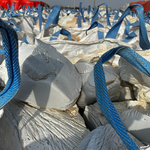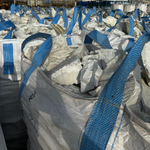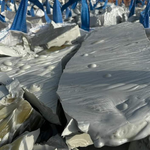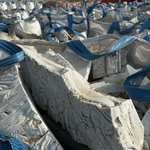Category: Plastic Waste Products
Vendor:Polymer in Stock
Polyethylene Terephthalate (PET) plastic Material
The versatile and extensively used polymer noted for its strength, transparency and recyclability is polyethylene terephthalate (PET). PET is a polymer that is used in textiles and packaging materials, among other things. Because of the material's capacity for recycling, several sectors and programs centered on PET recycling have emerged. Let's examine the effects that PET plastic and its products are having on various parts of the world, such as South Africa, Mombasa, Bangladesh, India, Pakistan, and Sri Lanka.
PET Lumps Suppliers in India
PET polymers, especially PET Lumps, are in high demand in India and are used in many different industrial processes. PET Lumps providers in India supply top-notch recycled PET material to the packaging, textile, and other plastic product industries. By lowering the need for virgin polymers, PET recycling not only helps manage plastic waste but also has a major positive economic impact. Indian businesses are embracing more sustainable practices and highlighting the value of recycled polymers in the industry.
PET Recycling Industry in Pakistan
The recycling of PET is becoming more and more popular in Pakistan as people become more conscious of environmental sustainability. There is a growing market for recycled PET polymers, and there are several facilities that turn PET waste into useful resources. PET Lumps, a raw material used in many industrial applications, are primarily provided by these factories. In order to promote the usage of recycled polymers and lessen plastic waste, Pakistan's PET recycling sector is essential to building a more sustainable future.
PET Recycling Initiatives in Sri Lanka
Sri Lanka has taken steps to address the growing problem of plastic waste by implementing multiple PET recycling schemes. Due to the nation's limited disposal capacity, waste management has required creative solutions. One of the main tactics used in these programs is recycling PET into PET lumps. The need for virgin polymers is decreased by using these PET lumps in the production of new PET goods. Organizations and government agencies in Sri Lanka are aggressively pushing these recycling programs and emphasizing how crucial it is to use recycled polymers in order to safeguard the environment.
PET Lumps Importers in Bangladesh
PET Lumps must be imported into Bangladesh in order to satisfy the needs of the regional manufacturing sectors. The need for premium polymers, particularly recycled PET, has grown as the packaging and textile industries grow. In order to provide local businesses with affordable and sustainable raw materials, PET Lumps importers in Bangladesh are essential to the supply of these commodities. The fact that PET lumps are imported highlights the significance of international trade in recycled polymers and the interdependence of the recycling sector.
PET Lumps Suppliers in Kenya
Kenya is seeing a rise in demand for recycled polymers, such as PET Lumps, as a result of its expanding environmental concern. Kenyan PET lump providers offer essential materials for a range of uses, including building and packaging. The nation's attempts to control plastic waste and encourage the use of recycled materials depend heavily on these sources. Kenya is moving in the direction of a more environmentally friendly and sustainable future by utilizing the advantages of PET polymers.
PET Recycling Industry in South Africa
PET recycling is a thriving business in South Africa, bolstered by multiple organizations and laws from the government. One important component of this sector is the recycling of PET polymers into PET lumps. Because of the widespread usage of these recycled materials in manufacturing, less virgin polymers are required. South Africa's dedication to PET recycling promotes innovation and economic growth in the polymer industry in addition to aiding in the management of plastic waste.
Uses of PET-P Cuttings
Recycling: Recycling operations can benefit greatly from PET-P Cuttings as a raw material. The demand to produce virgin plastic can be decreased by melting them down and reshaping them into new PET items.
Manufacturing: PET-P Cuttings are used as feedstock by industries to make a range of PET-based goods, including fibers, bottles, containers, and packaging materials.
Construction: To increase durability and lessen environmental effect, PET-P Cuttings may occasionally be added to building materials like composite materials or insulating boards.
Textiles: PET-P Cuttings can be turned into fibers and utilized to make polyester fabrics for furniture, clothes, and other uses.
Art and Crafts: PET-P Cuttings can be recycled by craftsmen and creative people to create sculptures, art pieces, or do-it-yourself crafts that encourage eco-friendliness and sustainability.
Education: PET-P Cuttings can be used as teaching aids in colleges and universities to illustrate recycling procedures and increase public knowledge of environmentally friendly waste management techniques.
In summary
Plastic material made of polyethylene terephthalate (PET) is an essential part of the global polymer industry, and it has a big influence in places like South Africa, Mombasa, Bangladesh, India, Pakistan, and Sri Lanka. One important tactic for controlling plastic waste and advancing sustainability is the recycling of PET into PET Lumps. Recycled polymers will become increasingly important in a variety of industries as these regions build out their recycling infrastructure and implement sustainable practices, which will help create a more sustainable future.
RECENTLY VIEWED PRODUCTS
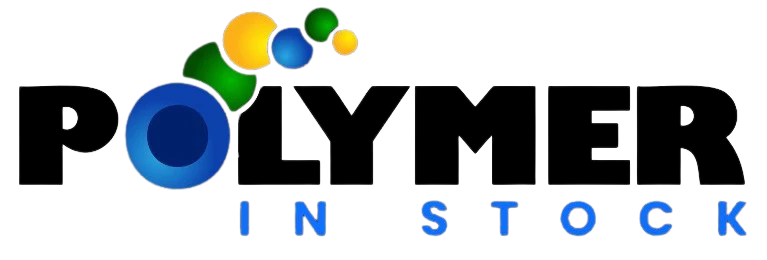


 +971 509205838
+971 509205838






